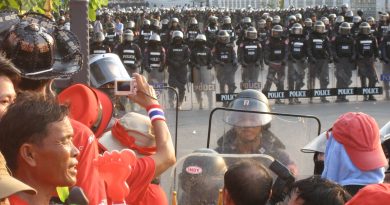India’s Neutral Foreign Policy Threatened by Ukraine Crisis
Muntaser Ahmed
Staff Writer
On February 24, Russia made the conscious decision to invade Ukraine for yet another time since 2014. This active encroachment into non-Russian territory, which was condemned internationally, triggered the largest refugee crisis in Europe since World War II, reports Reuters. Although Europe has been heavily affected by this Russian aggression, the actions taken by those less impacted by the conflict will set the tone for how the international community reacts to similar crises in the future.
India is one of the above-mentioned voices that has chosen to stay silent about this situation, as the South Asian state maintained its long-practiced strategic state of non-alignment by abstaining in both the UN Security Council and General Assembly resolutions condemning Russia, reports The Indian Express. Rather than explicitly condemn Russia or voice support for Ukraine, India has spoken about the importance of “the UN Charter, international law, and respect for the sovereignty and territorial integrity of states”, adding that “all member states need to honor these principles in finding a constructive way forward,” according to BBC News. These sentiments may ring hollow to some, however, when the state whose sovereignty is being violated is absent from their statement and the state violating the UN charter is also not addressed.
India’s cordiality with other countries has been a feature of its modern diplomacy, siding with whomever they find necessary to their strategic benefit when international crises arise. India, under Prime Minister Narendra Modi, has appeared to drift away from its long-time ally Russia in recent years as relations between Modi’s government and both the Obama and Trump Administrations flourished, says Deutsche Welle.
India’s relations with Pakistan and China are at an all-time low, due primarily to geographical distinctions unable to be diplomatically resolved by the parties involved. China has criticized Prime Minister Modi’s trips to Arunachal Pradesh, a state in Northeastern India that borders China, reports the South China Morning Post. Beijing claims the region, which it calls Southern Tibet, as part of its territory. With tensions heating up from such non-aggressive tactics, India is in a sensitive position, unable to be steadfast and off-balance.
U.S. President Joe Biden had some similar thoughts, calling out India for being shaky on what seems to be a humanitarian effort turned into a power scaling competition, reports BBC News. With India less concerned for the global community and more concerned about what is occurring inside of its own borders, some consider it selfish of India to fall back and take this period to work on itself, according to The Diplomat. However, since China is seen as a more pressing threat to India, others argue that the Ukraine crisis does not require India’s immediate attention, according to The Tribune.
With India’s contentious history regarding border disputes with China including the disregard for the McMahon demarcation line established by the British and border disputes that led to the death of only Indian soldiers, there is no doubt that India wants to do whatever it can to stay focused on its more immediate threats, according to the Times of India. In the same manner that Ukraine is looking for help as the Russians invade, India wants to stay secure with its help from the West as well as Russia to avoid providing neighboring countries with an opportunity to strike, according to The New York Times. When India abstained from a United Nations vote and an outright condemnation against the Ukraine invasion, it was not a drastic decision in favor of President Vladimir Putin and against President Zelensky, but rather a strategic move, driven by vulnerability to maintain its policy of neutrality and prioritize its own security interests.

